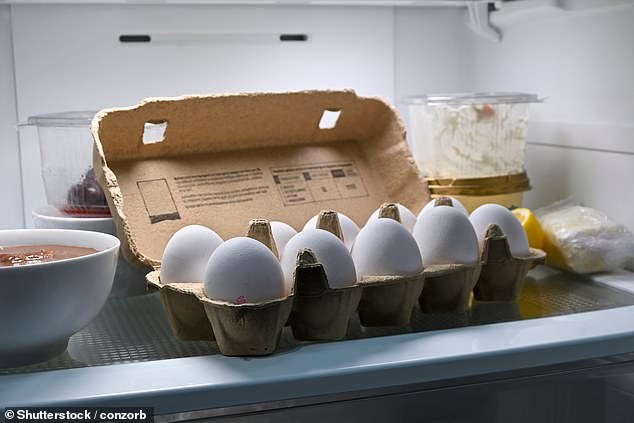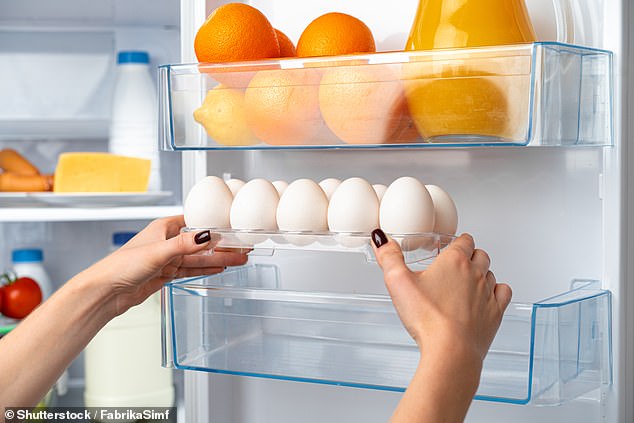They are a staple item in kitchens across the UK.
But it turns out you’ve probably been storing your eggs wrong.
This is according to Adam Oakley, storage expert at Door to Store, who has revealed the right place to store them.
Most refrigerators are equipped with designated egg compartments in the door.
However, Oakley says this position is far from ideal and could actually increase the risk of contamination as well as breakage.
“The refrigerator door experiences constant temperature fluctuations due to its regular opening and closing,” he explained.
“This unstable environment creates conditions in which bacteria can thrive and weaken the egg’s natural protective barrier, accelerating its deterioration.”
Instead of the door, the expert says the eggs should be placed in the deepest center part of the refrigerator.
Most refrigerators are equipped with designated egg compartments in the door. However, Oakley says this position is far from ideal and could actually increase the risk of contamination as well as breakage.
The center of your refrigerator maintains a constant temperature, usually below 2°C.
According to Oakley, this is crucial to preserving the freshness of the eggs.
You may be concerned that keeping eggs in the middle of the refrigerator will expose them to unwanted odors or flavors from other foods.
However, Oakely says that a specific tray or container with a lid should suffice.
“This extra step not only helps maintain quality but also keeps the refrigerator more organized,” he added.
Meanwhile, for those tempted to do without the refrigerator altogether, Oakley strongly advises against this option.
“Eggs stored at room temperature begin to lose quality after a few days, especially in warmer climates,” he noted.
“While eggs stored outside the refrigerator should ideally be used within 1 to 3 weeks, refrigerated eggs can last up to 3 to 5 weeks with their freshness intact.”

The center of your refrigerator maintains a constant temperature, usually below 2°C. This is crucial to preserving the freshness of the eggs, according to Oakley.
However, even refrigerated eggs have an expiration date.
“While refrigeration significantly extends shelf life, it is always best to consume eggs within a few weeks to ensure optimal flavor and quality,” Oakley added.
Beyond placement in the refrigerator, the expert also has several tips to keep eggs fresh for longer.
First, he advises storing them in their original box, which will provide a protective barrier.
Next, avoid washing eggs before storing them, as this removes their natural coating and makes them more susceptible to bacteria.
You should also place the eggs point down, to help maintain the central position of the yolk.
Finally, Mr. Oakley says eggs should be kept away from foods with strong odors to prevent them from acquiring unwanted odors.


